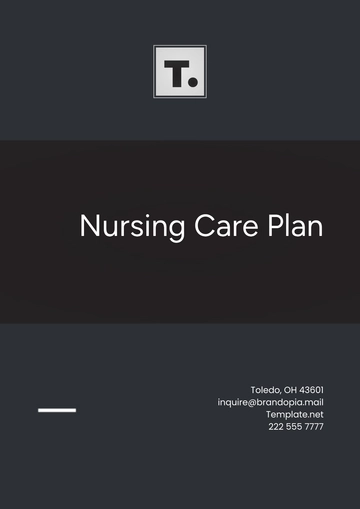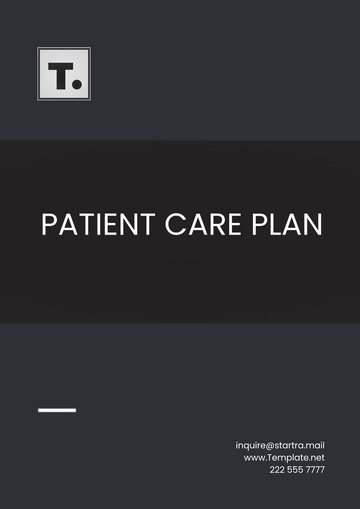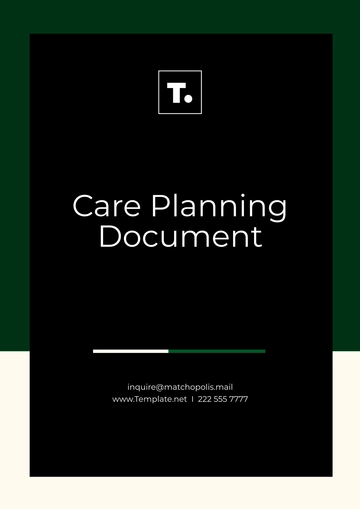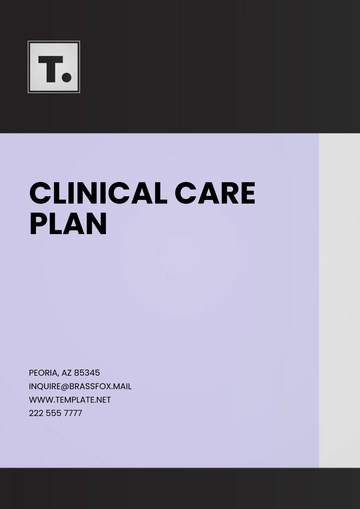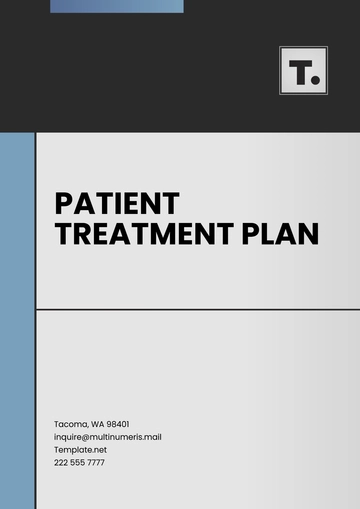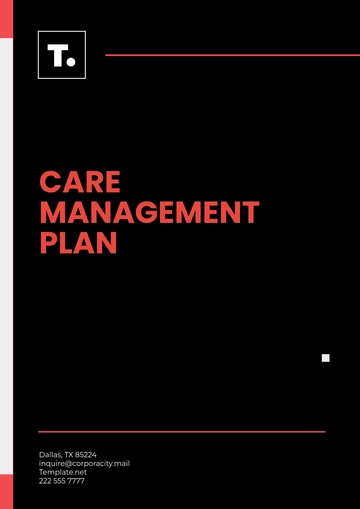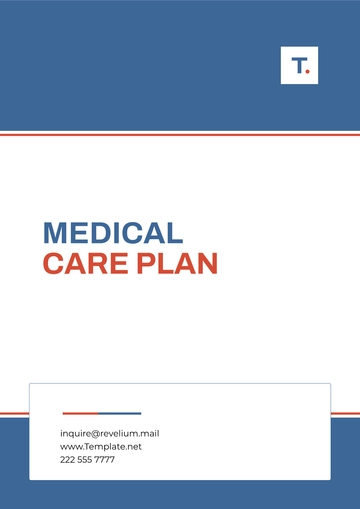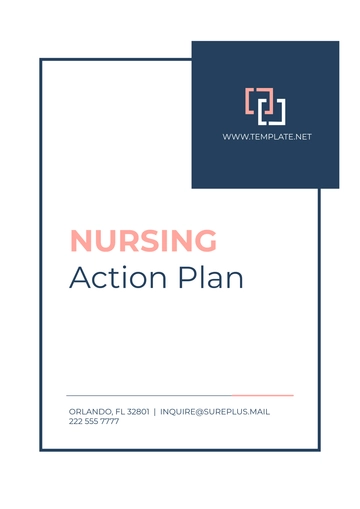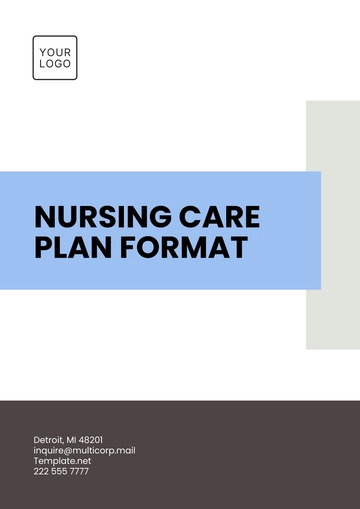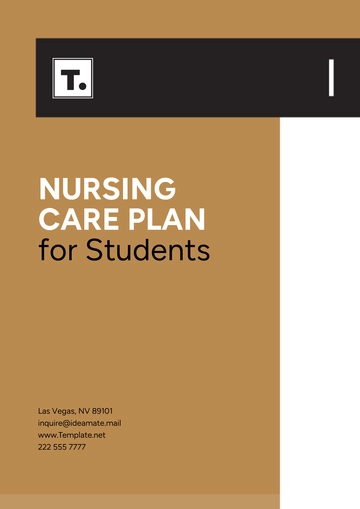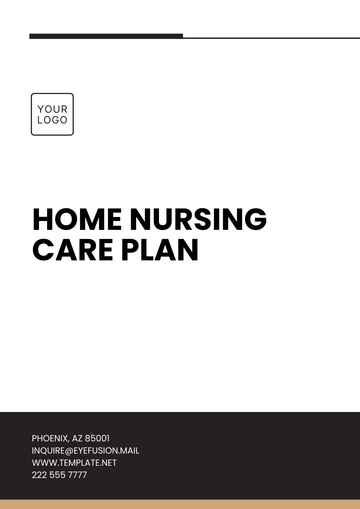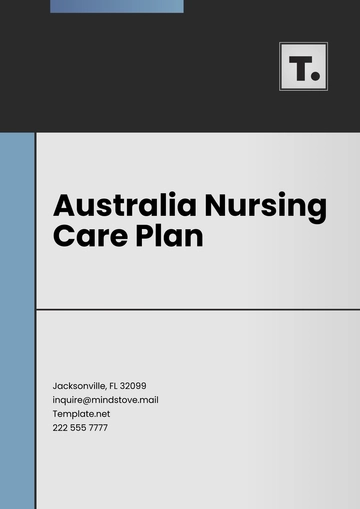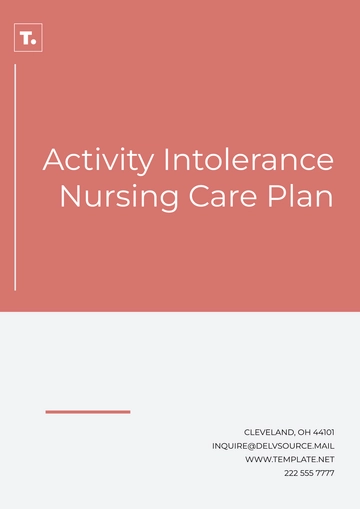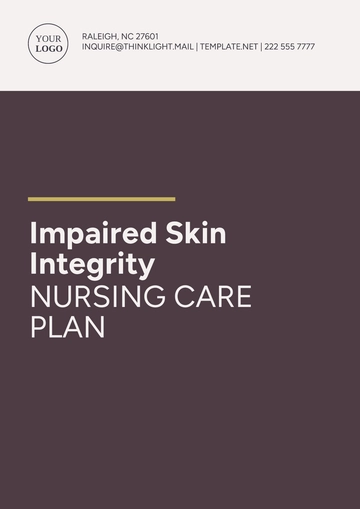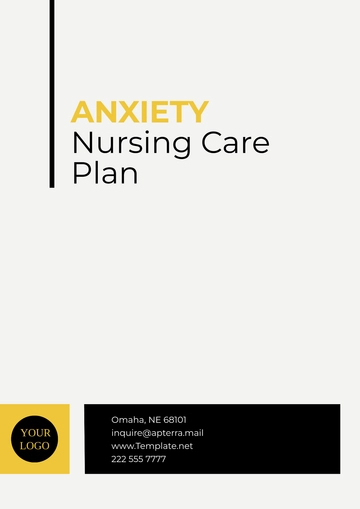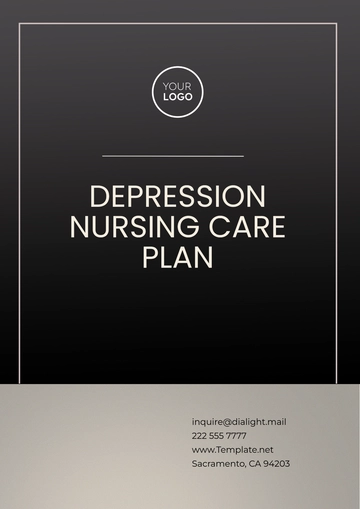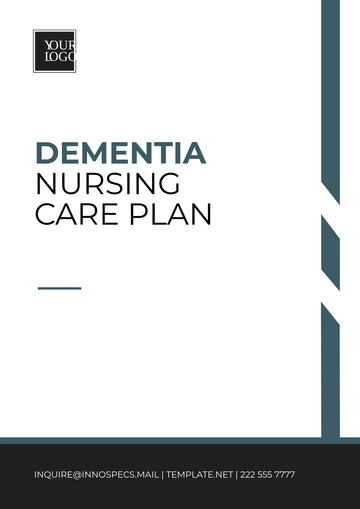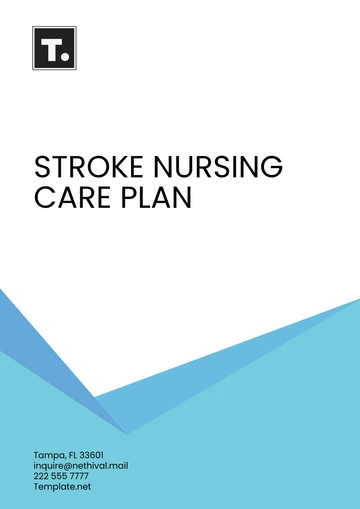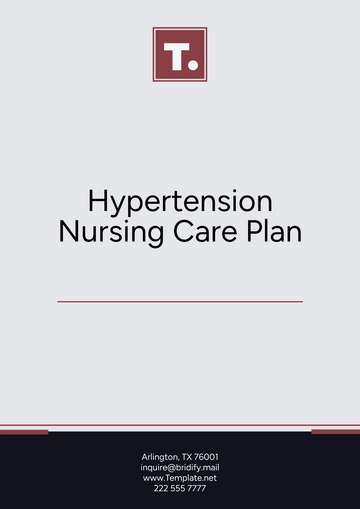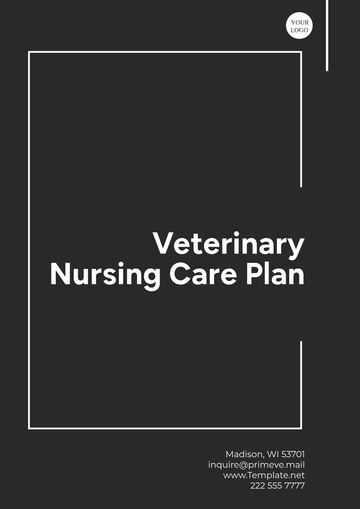Free Dementia Care Plan
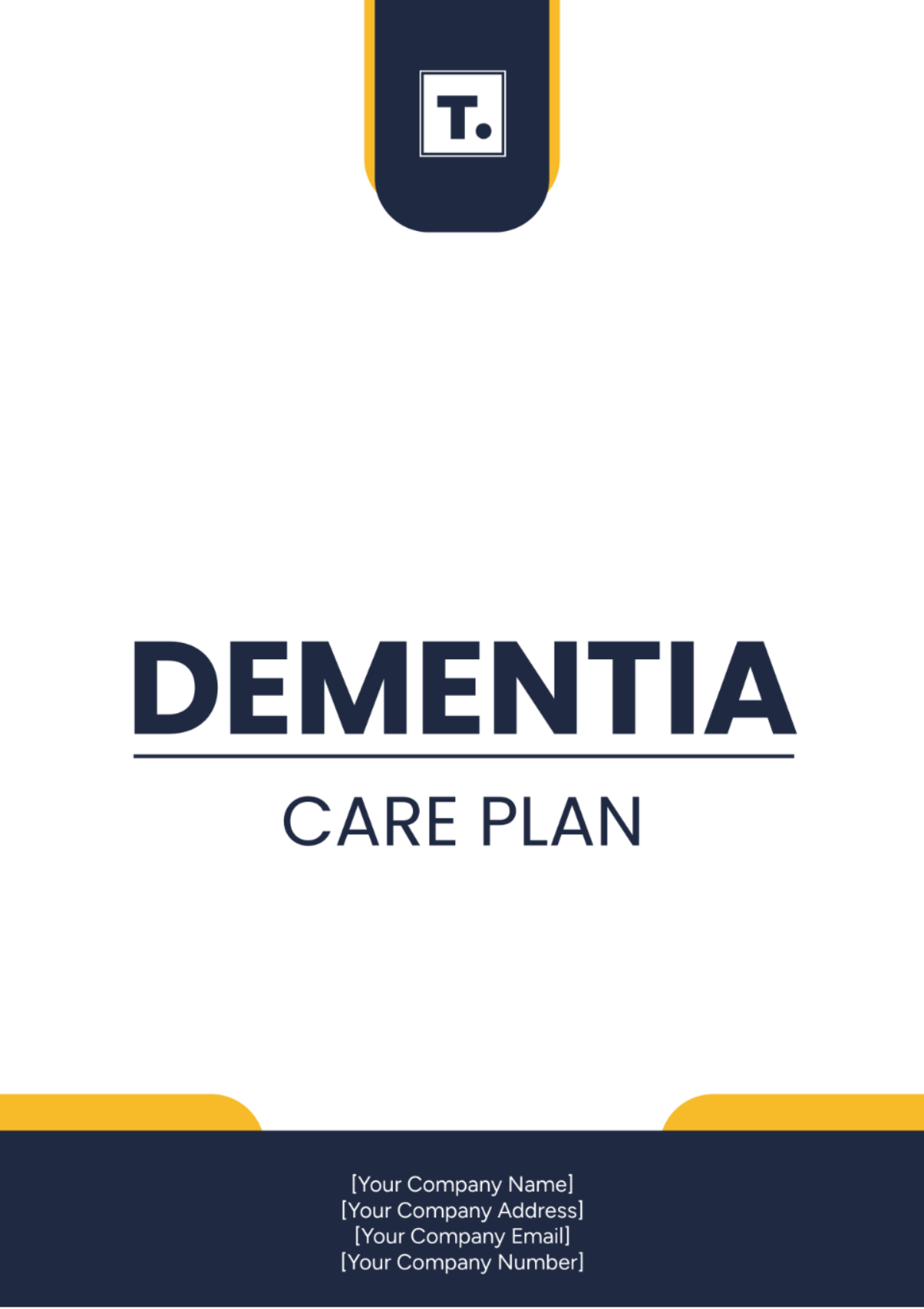
Prepared by: [Your Name]
Date: [Date]
Patient Information
Name: [Patient's Name]
Age: [Patient's Age]
Gender: [Patient's Gender]
Diagnosis: Dementia
Living Arrangement: Home
Caregiver(s): [Your Name]
I. Assessment
The patient has been diagnosed with dementia, a progressive neurological disorder affecting memory, cognitive function, and daily functioning. Assessment reveals impairments in short-term memory, orientation, judgment, and problem-solving abilities. The patient experiences difficulties with activities of daily living (ADLs) and may exhibit behavioral symptoms such as agitation, wandering, and sundowning.
II. Goals
To optimize the patient's quality of life and promote independence as much as possible.
To enhance safety within the home environment.
To provide support and education for caregivers to manage the challenges associated with dementia care.
To monitor and manage behavioral symptoms effectively.
III. Interventions
A. Medication Management
Review the current medication regimen and adjust as needed to manage symptoms such as agitation, aggression, or depression.
Educate caregivers about the importance of medication adherence and potential side effects.
B. Daily Routine and Structure
Establish a consistent daily routine to promote familiarity and reduce anxiety.
Provide visual cues and reminders for daily tasks and activities.
Encourage participation in meaningful activities tailored to the patient's interests and abilities.
C. Environmental Modifications
Ensure the home environment is safe and conducive to the patient's needs.
Remove hazards and obstacles to prevent falls.
Consider implementing assistive devices or technology to enhance safety and independence.
D. Nutrition and Hydration
Monitor the patient's nutritional intake and hydration status.
Offer nutritious meals and snacks at regular intervals.
Encourage adequate fluid intake to prevent dehydration.
E. Physical Activity and Exercise
Incorporate regular physical activity into the patient's daily routine, tailored to their abilities.
Engage in activities such as walking, gentle stretching, or chair exercises to promote mobility and overall well-being.
F. Cognitive Stimulation
Provide cognitive stimulation activities to maintain cognitive function and delay further decline.
Offer puzzles, games, reminiscence therapy, and other mentally stimulating activities.
G. Behavioral Management
Develop strategies to manage challenging behaviors such as agitation, aggression, or wandering.
Utilize calming techniques, redirection, and validation therapy as appropriate.
Consider consulting with a behavioral specialist or psychiatrist for additional support.
H. Support for Caregivers
Offer education and training for caregivers on dementia care strategies, communication techniques, and stress management.
Provide respite care resources to allow caregivers opportunities for rest and self-care.
Facilitate support groups or counseling services to address caregiver stress and burnout.
IV. Monitoring and Follow-Up
Schedule regular follow-up visits with the geriatrician or healthcare team to assess the patient's progress and adjust the care plan as needed.
Solicit feedback from the caregiver regarding the effectiveness of interventions and any challenges encountered.
Monitor changes in the patient's condition, including cognitive decline, functional status, and behavioral symptoms, to guide further management.
V. Emergency Plan
Develop an emergency plan in case of medical emergencies, wandering incidents, or behavioral crises.
Ensure that the caregiver has access to emergency contact numbers, medical records, and necessary supplies.
Educate the caregiver on how to respond to emergencies calmly and effectively while prioritizing the safety of the patient.
VI. Advance Care Planning
Discussions regarding advance care planning and end-of-life preferences will be initiated with the patient and family members to ensure that the patient's wishes are documented and respected.
VII. Documentation and Communication
Accurate and detailed documentation of assessments, interventions, and outcomes will be maintained in the patient's medical record. Open communication between the healthcare team, caregivers, and other involved parties will be prioritized to facilitate coordinated care and optimal outcomes for the patient.
- 100% Customizable, free editor
- Access 1 Million+ Templates, photo’s & graphics
- Download or share as a template
- Click and replace photos, graphics, text, backgrounds
- Resize, crop, AI write & more
- Access advanced editor
Discover peace of mind with the Dementia Care Plan Template from Template.net. Crafted for caregivers, this editable and customizable tool streamlines care management. Tailor each aspect effortlessly with our Ai Editor Tool, ensuring individualized support. Simplify your caregiving journey and enhance the quality of life for your loved one. Get started today.
You may also like
- Finance Plan
- Construction Plan
- Sales Plan
- Development Plan
- Career Plan
- Budget Plan
- HR Plan
- Education Plan
- Transition Plan
- Work Plan
- Training Plan
- Communication Plan
- Operation Plan
- Health And Safety Plan
- Strategy Plan
- Professional Development Plan
- Advertising Plan
- Risk Management Plan
- Restaurant Plan
- School Plan
- Nursing Home Patient Care Plan
- Nursing Care Plan
- Plan Event
- Startup Plan
- Social Media Plan
- Staffing Plan
- Annual Plan
- Content Plan
- Payment Plan
- Implementation Plan
- Hotel Plan
- Workout Plan
- Accounting Plan
- Campaign Plan
- Essay Plan
- 30 60 90 Day Plan
- Research Plan
- Recruitment Plan
- 90 Day Plan
- Quarterly Plan
- Emergency Plan
- 5 Year Plan
- Gym Plan
- Personal Plan
- IT and Software Plan
- Treatment Plan
- Real Estate Plan
- Law Firm Plan
- Healthcare Plan
- Improvement Plan
- Media Plan
- 5 Year Business Plan
- Learning Plan
- Marketing Campaign Plan
- Travel Agency Plan
- Cleaning Services Plan
- Interior Design Plan
- Performance Plan
- PR Plan
- Birth Plan
- Life Plan
- SEO Plan
- Disaster Recovery Plan
- Continuity Plan
- Launch Plan
- Legal Plan
- Behavior Plan
- Performance Improvement Plan
- Salon Plan
- Security Plan
- Security Management Plan
- Employee Development Plan
- Quality Plan
- Service Improvement Plan
- Growth Plan
- Incident Response Plan
- Basketball Plan
- Emergency Action Plan
- Product Launch Plan
- Spa Plan
- Employee Training Plan
- Data Analysis Plan
- Employee Action Plan
- Territory Plan
- Audit Plan
- Classroom Plan
- Activity Plan
- Parenting Plan
- Care Plan
- Project Execution Plan
- Exercise Plan
- Internship Plan
- Software Development Plan
- Continuous Improvement Plan
- Leave Plan
- 90 Day Sales Plan
- Advertising Agency Plan
- Employee Transition Plan
- Smart Action Plan
- Workplace Safety Plan
- Behavior Change Plan
- Contingency Plan
- Continuity of Operations Plan
- Health Plan
- Quality Control Plan
- Self Plan
- Sports Development Plan
- Change Management Plan
- Ecommerce Plan
- Personal Financial Plan
- Process Improvement Plan
- 30-60-90 Day Sales Plan
- Crisis Management Plan
- Engagement Plan
- Execution Plan
- Pandemic Plan
- Quality Assurance Plan
- Service Continuity Plan
- Agile Project Plan
- Fundraising Plan
- Job Transition Plan
- Asset Maintenance Plan
- Maintenance Plan
- Software Test Plan
- Staff Training and Development Plan
- 3 Year Plan
- Brand Activation Plan
- Release Plan
- Resource Plan
- Risk Mitigation Plan
- Teacher Plan
- 30 60 90 Day Plan for New Manager
- Food Safety Plan
- Food Truck Plan
- Hiring Plan
- Quality Management Plan
- Wellness Plan
- Behavior Intervention Plan
- Bonus Plan
- Investment Plan
- Maternity Leave Plan
- Pandemic Response Plan
- Succession Planning
- Coaching Plan
- Configuration Management Plan
- Remote Work Plan
- Self Care Plan
- Teaching Plan
- 100-Day Plan
- HACCP Plan
- Student Plan
- Sustainability Plan
- 30 60 90 Day Plan for Interview
- Access Plan
- Site Specific Safety Plan
